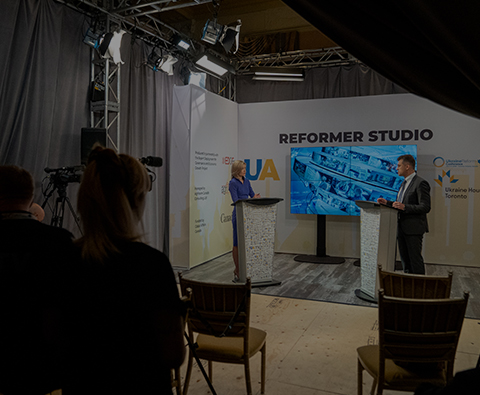ABOUT MARTIAL LAW REGIME
On 24 February 2022, the Russian Federation launched a large-scale armed aggression against Ukraine, killing Ukrainian citizens and destroying towns and villages as a result of offensive hostilities, including missile, artillery and air strikes. In order to repel the aggressor and protect the sovereignty and territorial integrity of the state, martial law was imposed in Ukraine by the Decree of the President of Ukraine No. 64/2022 as of 24 February 2022. According to the Decree of the President of Ukraine № 58/2023 as of 06 February 2023, martial law in Ukraine will last at least until 20 May 2023. What is the legal regime of martial law and how does its introduction affect the functioning of economic entities in Ukraine?
The main legal act that regulates legal relations regarding the imposition of martial law in Ukraine is the Law “On the Legal Regime of Martial Law”. This law determines, in particular, the legal basis of activity of public authorities and local governments, enterprises, institutions and organizations, guarantees of human and civil rights and freedoms and the rights and legitimate interests of legal entities during martial law.
One of the priority measures that may take place during martial law in Ukraine or in some of its territories is the formation of temporary state bodies – military administrations. By the Decree of the President of Ukraine No. 68/2022 as of 24 February 2022, the relevant military administrations were established on the basis of regional, district and Kyiv city state administrations. According to the Law of Ukraine “On the Legal Regime of Martial Law” (hereinafter – the Law), military administrations have special powers and subordination.
In accordance with Article 4 (7) of the Law, the General Staff of the Armed Forces of Ukraine shall direct, coordinate and control the activities of regional military administrations on defense, public safety and order, and implement measures of martial law. The Cabinet of Ministers of Ukraine shall direct, coordinate and control the regional military administrations regarding other issues.
These are the following measures, which can be carried out by military administrations together with the military command:
– introduction of compulsory labor able-bodied persons who are not involved in work in the defense sphere and in the sphere of ensuring the livelihood of the population and are not booked for the period of martial law for the purpose of performing works of a defensive nature;
– use of capacities and labor resources of enterprises, institutions and organizations of all forms of ownership for defense needs;
– forced alienation of property of private or communal ownership for the needs of the state;
– imposition of curfew and establishment of a special regime of light masking;
– establishment of a special regime of entry and exit of the country, restriction of freedom of movement of citizens, foreigners and stateless persons, as well as movement of vehicles;
– checking the documents of persons and inspecting personal belongings, vehicles, luggage and cargo, offices and housing of citizens;
– in case of violation of the requirements or non-compliance with the measures of the martial law regime, seizure from enterprises, institutions and organizations of all forms of ownership, individuals of electronic communication equipment, television, video and audio equipment, computers and other technical means of communication;
– ban on trade in weapons, strong chemicals and poisonous substances, as well as alcoholic beverages and substances produced on the basis of alcohol;
– imposition of obligation for individuals and legal entities to accommodate servicemen, law enforcement officers and chiefs of staff, civil defense personnel, evacuated population and the deployment of military units, subdivisions and institutions, etc.
It is important to note that the above-mentioned powers are exercised by military administrations only within the temporary restrictions on constitutional rights and freedoms of man and citizen, as well as the rights and legitimate interests of legal entities under the Presidential Decree on martial law. According to the Decree of the President of Ukraine No. 64/2022 as of 24 February 2022, the constitutional rights and freedoms of individuals and citizens provided for in Articles 30 – 34, 38, 39, 41 – 44, 53 of Constitution of Ukraine may be temporarily restricted during martial law (in particular, concerning inviolability of the home, secrecy of correspondence, non-interference in private and family life, freedom of movement, freedom of thought and speech, the right to own, use and dispose of one’s property, etc.).
In addition, military administrations are responsible for exercising the powers of the relevant local state administrations, as well as resolving issues related to:
– placement on a contractual basis of orders for production, performance of works (services) required for the territorial community, enterprises, institutions and organizations;
– preparing and approving a local budget, making changes to it, ensuring implementation of a current budget;
– management of property of communal ownership of the respective territorial community (except for resolving issues of alienation, including privatization of communal property and lease of communal property for more than one year);
– provision of town-planning conditions and restrictions on land development in accordance with the law;
– decision on the regulation of land relations (except for alienation of land of communal ownership and lease of such land for more than one year);
– decision on granting a permit for special use of natural resources of local importance for a period not exceeding one year, as well as revocation of such a permit;
– decision on prohibition of trade in weapons, strong chemicals and poisonous substances, as well as alcoholic beverages and substances produced on the basis of alcohol, etc.








